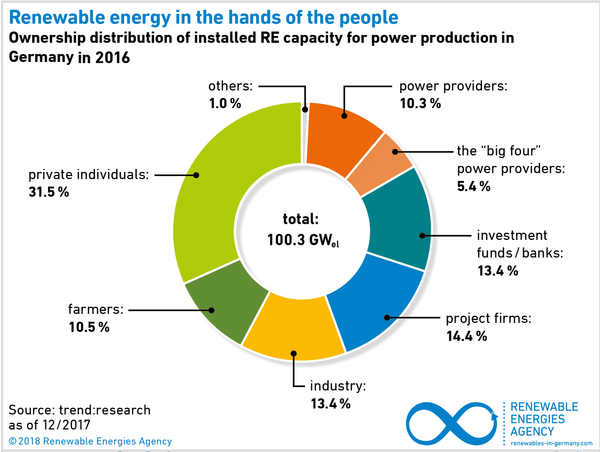2. More public participation
With renewable energies, every citizen can be a power plant operator. Without the support for renewable energy this would not be possible. The legal framework such as the Renewable Energy Sources Act (EEG) and the Market Incentive Programme (MAP) facilitate investment by means of a guaranteed purchase of electricity from renewable energy sources or through subsidies for the purchase of a new, renewable heating systems. With solar panels, a wood pellet heating system or a heat pump, one’s own home can become an electricity and heat production unit.
But even without a house of one’s own one can participate in the energy supply from renewable sources: For example, citizen-owned wind energy systems or citizen-owned solar energy plants allow for small investments. Energy cooperatives have become more and more popular and with investment thresholds as low as 50 Euros, one can start participating in renewable energy projects.
Moreover, one can quickly and easily switch to a green electricity provider. By switching to a sustainable energy supplier, neighbours, friends and family can also become ‘investors’ in renewable energy.
In 2012, a survey by trend research found that 46 percent of all renewable energy capacity so far installed in Germany is in the hands of private individuals and farmers. This serves as evidence that citizens actively and successfully take part in the growth of renewable energies.
The transformation from a centralised energy supply by large power stations to small-scale, decentralised systems that produce electricity as well as heat and secure mobility, serves as an example for an energy strategy for the future.

Social Media